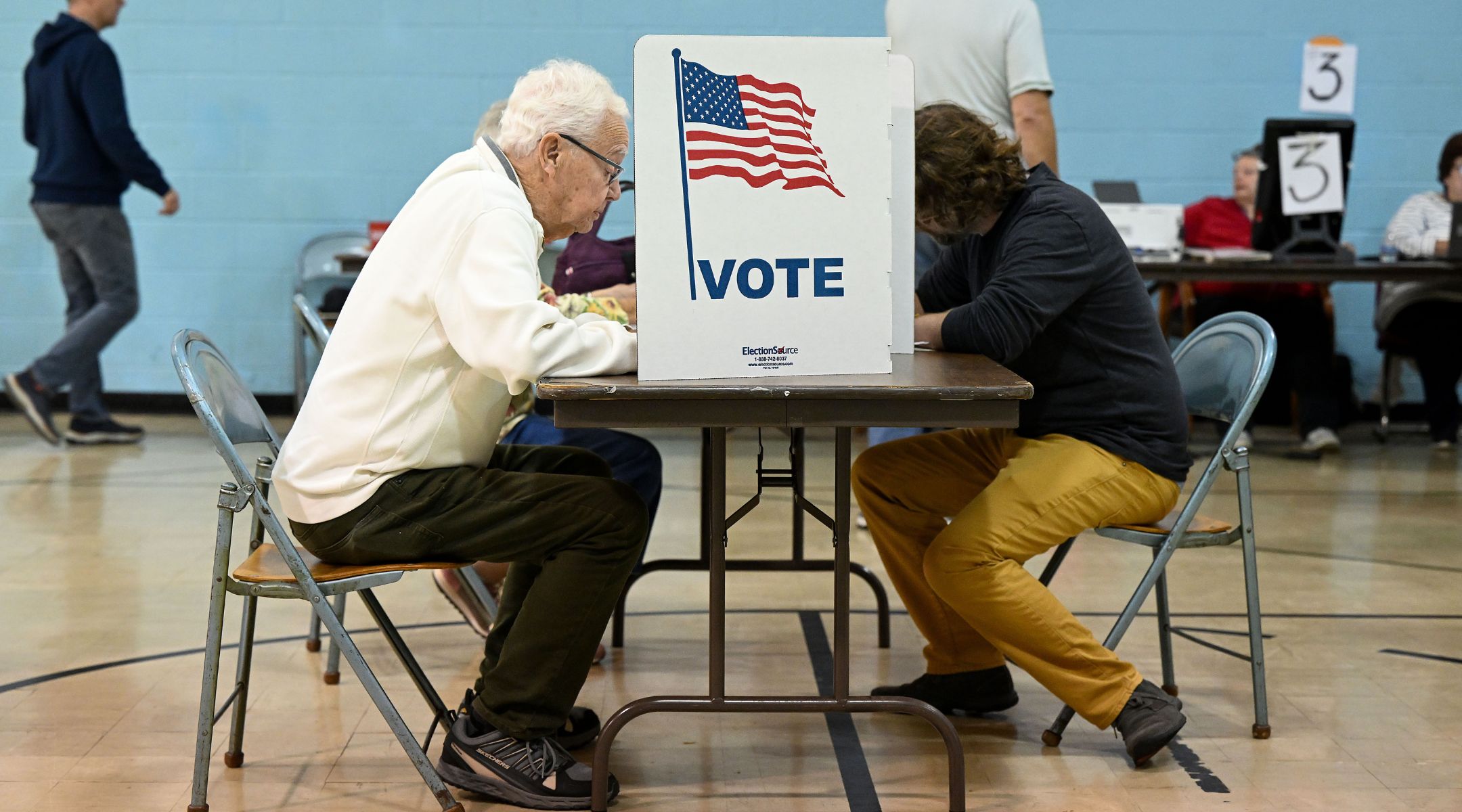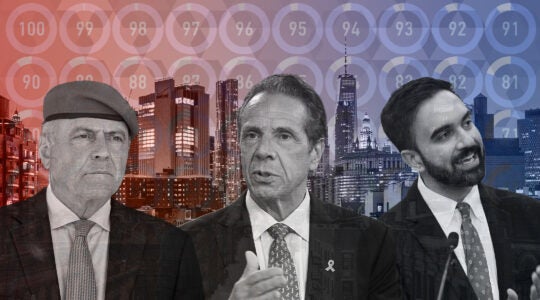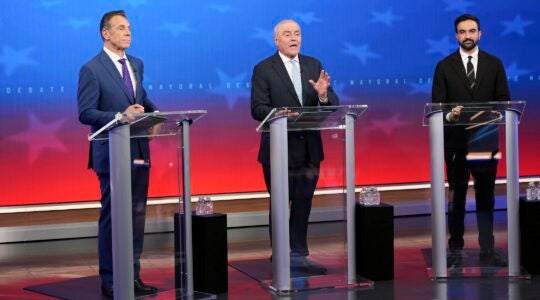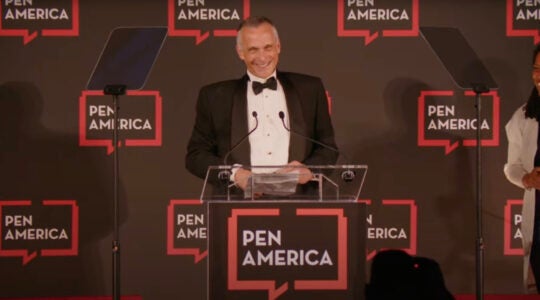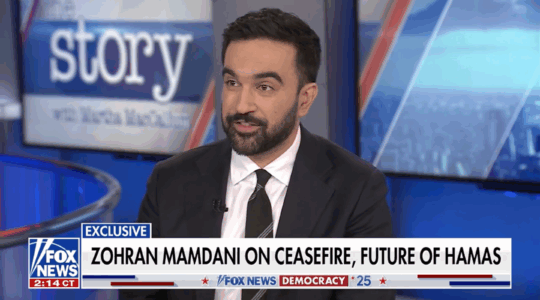Ahead of the High Holidays this year, Rabbi Abe Friedman heard from a congregant who was unsure about renewing their synagogue membership. The uncertainty had nothing to do with the dues, the religious school or the divides plaguing some Jewish communities over the Israel-Hamas war.
It was because of comments Friedman had made about the Jan. 6, 2021, riot at the U.S. Capitol, Christian nationalism and the threat of authoritarianism.
“They shared this with me together with the kinds of conspiracy theories that are circulating in the farther right,” said Friedman, senior rabbi of Temple Beth Zion-Beth Israel, a Conservative synagogue in Philadelphia. “My feeling was, I hope you stay in the congregation. I know you as a neighbor. There’s a lot of things that I value about your perspective and your being here. And you and I fundamentally view these issues differently.”
The episode illustrates the tightrope many rabbis and Jewish communal leaders are walking as they navigate a fraught election season — one that is all the more contentious in the seven so-called battleground states of Pennsylvania, North Carolina, Georgia, Nevada, Arizona, Michigan and Wisconsin.
Those states, which are all polling as virtual ties between former President Donald Trump and Vice President Kamala Harris, are home to numerous cities with robust Jewish communities, from Atlanta and Philadelphia to Las Vegas and Milwaukee.
In some communities, Tuesday’s election isn’t stoking divisions. Rabbi Dovid Kitainik expects his Orthodox congregation in Las Vegas to vote almost entirely for Trump.
“I could probably count on my hand how many people would not be voting for Trump,” Kitainik said of his roughly 100-family community.
But just five miles down the road at Temple Beth Sholom, it’s a completely different story.
“The people that have talked to me about it are completely split,” said Rabbi Felipe Goodman, who has led the Conservative synagogue since 1998. “That’s the conversation amongst themselves, like, ‘What am I going to do? Who are you going to vote for? I don’t know what to do.’”
Goodman said his congregation is fairly evenly divided among Democrats and Republicans, and he has members who are involved with both parties’ Jewish coalitions, as well as AIPAC, the leading pro-Israel lobby. While past elections were more “clear cut,” Goodman said, this year, his community is torn.
“When they talk about undecided voters, they’re talking about my congregation,” Goodman added. “I’ve never had so many people contact me and ask me what I think they should do. And of course, I tell them, it’s their choice, not my choice.”
Goodman said the top issue that is weighing on his congregants’ minds as they make their decision is Israel.
On the one hand, Goodman said, he hears from congregants who say they “would like to vote for somebody I’ve never voted for before, but I can’t bring myself to do that,” referring to Trump. While some Jews view Trump as the more pro-Israel candidate, his character, conduct, domestic policies and approach to American democracy have disquieted many Jewish voters, who historically lean liberal and support Democrats.
On the other hand, “every time somebody says that Israel is committing genocide, and there’s no answer to that, people get pretty disappointed,” Goodman said, referring to the numerous pro-Palestinian protesters who have interrupted Harris’ campaign events.
A similar dynamic is unfolding outside Detroit at Rabbi Asher Lopatin’s modern Orthodox synagogue. Lopatin said that while a small number of members enthusiastically support each candidate, most are dissatisfied with both Trump and Harris.
“There’s a large group — maybe it’s the majority, the plurality — who did not like Donald Trump and really are very worried about him, but are very worried about a Harris and Tim Walz ticket, and especially about a lot of the advisors around them and the people around them that are their Middle East experts,” Lopatin said.
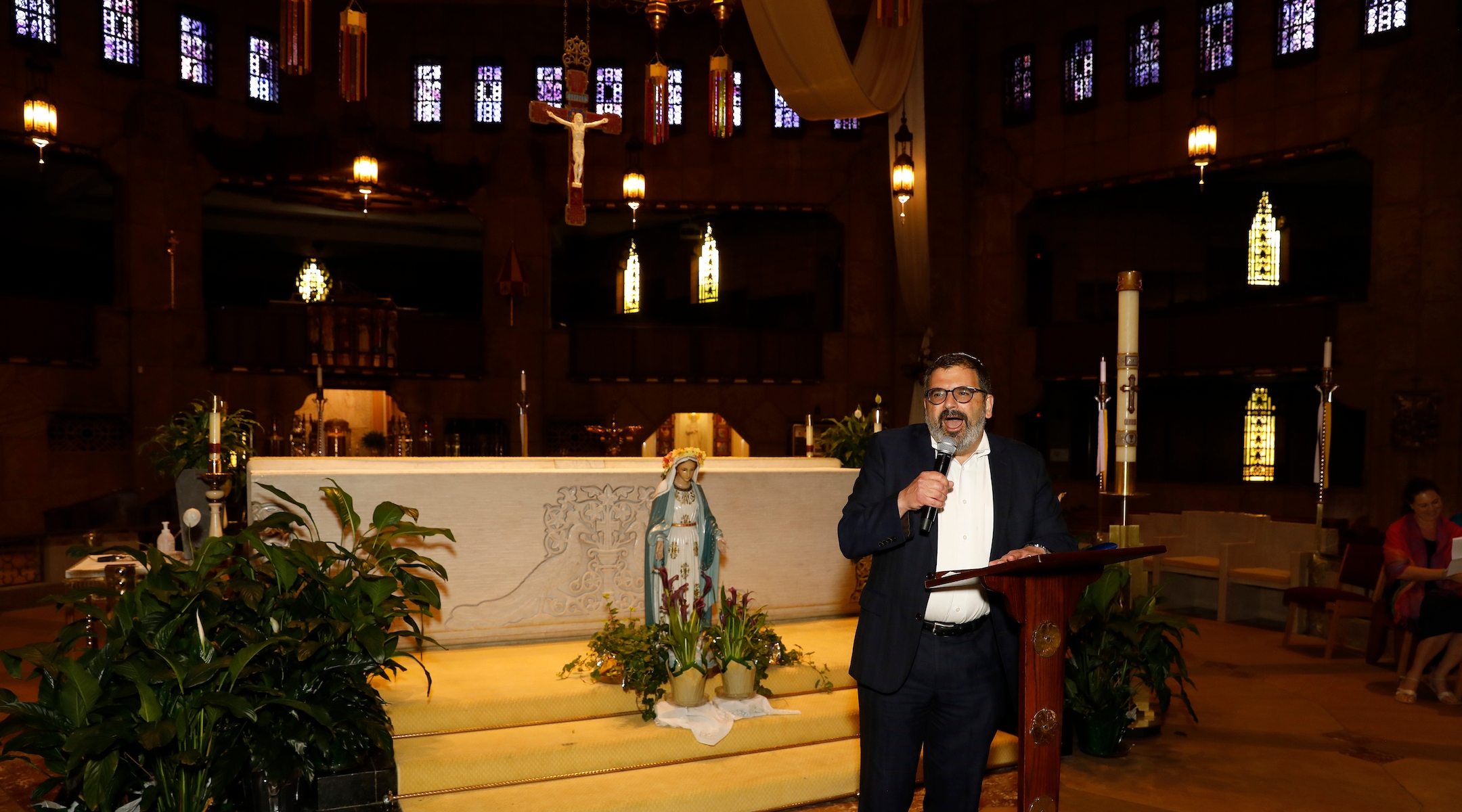
Rabbi Asher Lopatin, executive director of the Detroit JCRC/AJC, speaks from the old dais of Father Charles Coughlin at the National Shrine of the Little Flower Catholic church in Royal Oak, Mich., May 31, 2022. (Jeff Kowalsky)
Lopatin said his community is very engaged and that some members display lawn signs for their preferred candidate, and some have even volunteered for a campaign. Despite the apparent disagreements, Lopatin said, the discourse has been civil.
“If it really would be, you know, ‘yay Trump’ versus ‘yay Harris,’ maybe there’d be more tension,” Lopatin said.
Instead, he said, there’s a lack of enthusiasm for both candidates mixed with anxiety about Israel as well as “nervousness about wokeism and about all the those issues of the left and the danger of the Squad and Rashida Tlaib,” the first Palestinian-American member of Congress who is staunchly anti-Israel and serves the district next to Lopatin’s community.
In Savannah, Georgia, Rabbi Samuel Gelman’s Conservative synagogue is also fairly equally split between Democrats and Republicans. There, too, Israel has taken center stage in discussions about politics.
“Either people complain about the current [U.S.] government, feeling like it is not supportive of Israel enough, or people are saying the government is being very supportive of Israel, or that Israel isn’t being respectful to the government,” Gelman said.
Even in Georgia, the southeastern swing state, Gelman said he is able to discuss topics such as abortion and LGBTQ rights, adding that this synagogue has participated in the National Council of Jewish Women’s annual “Repro Shabbat” for reproductive rights. In fact, Gelman said he was told that he was the first rabbi in Savannah to talk about abortion from the pulpit.
“I tried to stick more to those rights-based ideas than specifically things like economic policy,” Gelman said. “I really don’t want people to feel like I’m dictating to them how to vote. That’s important to me, but I do try to mention rights where I can, things I find important in that respect, and honestly, they’ve been relatively well received.”
Other rabbis also said that while their congregations encourage civic engagement and voting, they tread carefully when broaching politics from the bimah.
Friedman in Philadelphia, for instance, said he has two rules for any political communication, whether in a sermon or a synagogue email. The message should be timeless, and not tied to a specific political moment. And the Jewish connection must be clear.
That doesn’t mean that Friedman refrains from talking about lowercase-D democratic values.
“I have shared with the congregation repeatedly [that] robust democratic institutions, a strong electoral franchise, pluralism, civil discourse, those are all things that are directly correlated with safety and prosperity for Jewish communities,” Friedman said. “Jews who live in places that are free and civil and where there’s a general concern for the public welfare are places that are safe for Jews to live, and places that are divided, autocratic governance, places that have a nativist bent, those places are not safe for Jews.”
If that message appears to lean one way in the 2024 election, Friedman said, so be it.
“The fact that there is only one candidate in the election who can reasonably be construed as aligned with the values that I am teaching is still not an endorsement, but I think there are really clear messages from Jewish history and from Torah tradition about what it means to protect vulnerable populations, about the need for Jews to ensure robust civil society for everyone, so that we also can sit in its protective shelter,” he said.
Rabbi Joel Alter in Milwaukee said his community — which he characterized as center to center-left socially and center to center-right on Israel — follows the “very classically Midwestern agreement” of not discussing the election at synagogue. But that makes it difficult to discuss issues that can be construed as political, even if the intention is not political, he said.
“My challenge, as with the challenge for all rabbis, in particular in similarly constituted congregations, is when stuff is going on in the public square that we feel needs to be addressed on a moral level, on a Jewish commitments level, irrespective of the political implications of that response, there are going to be people who feel that the response is fundamentally political,” Alter said.
For Goodman in Las Vegas, the exception to his apolitical approach came during the High Holidays.
Goodman, who described himself as a “hawk” on Israel policy, said he had been “pretty much in step” with the Biden administration’s approach to the Gaza war — until Biden told Israel not to bomb Iranian nuclear sites.
“That got me pretty upset, but I made a comment on Rosh Hashanah about it from the pulpit, and that was very unlike me,” Goodman said. “I’ve never done that before.”
The congregation’s reaction took him by surprise.
“There were some people who were upset, but I also got applause, which was insane,” he said. (Vocal responses to sermons, like clapping or booing, are uncommon in American synagogues.)
In general, Goodman said, he views the current communal role of a rabbi differently than he may have in an era before social media and the 24-hour news cycle. He also said he doesn’t imagine that he is influencing anyone’s vote.
“They don’t need me, trust me,” Goodman said. “There used to be a time where the rabbi was a big source of information. Now everybody has the internet and there’s articles written about this left and right. So nothing that I say, honestly, I think is going to sway my congregants one way or another.”
Gelman in Savannah said he is less concerned about his own community than he is for American Jews as a whole, especially as Trump has said a Republican loss this year could be blamed on them. (Georgia was at the forefront of Trump’s efforts to overturn election results in 2020.)
“I’m not really worried about people down here coming and blaming the Jewish community,” Gelman said. “If Georgia swings Democratic, then, ‘Oh, the Jews caused Trump to lose,’ I’m not really worried about that affecting us. I might worry about that affecting the larger Jewish community.”
Friedman said that even if the risk of violence against Jews is “infinitesimally small,” it’s still crucial to be prepared for the worst.
“Do I think that there’s a chance that in the aftermath of the election, someone could see that as an opportunity to perpetrate violence against a Jewish community? You can’t rule that out,” he said. “You can’t responsibly say, ‘Oh, it won’t happen.’ It could. And that’s a concern.”
Lopatin in Detroit is looking ahead, too. He suspects that after the election result is known, he may need to focus on “getting people together and talking about how we’re going to react, not in a totally emotional way, but in a way that is helpful to America and to Israel.”
While the sermon he delivers before Election Day may not factor into the political climate, he said, “next week’s is very important.”
For Alter, the metaphor he hopes to express to his community comes from the story of Noah, which he plans to share in a sermon this Shabbat, when that story will be read from the Torah. Alter said he was particularly struck by God’s instruction to Noah to feed all the animals on the ark in order to ensure each species gets what they need to survive.
“I think that that’s a very moving mandate for us as we go into the election, that we need to come through this whole,” Alter said. “The understanding that we’re all in the same boat.”
JTA has documented Jewish history in real-time for over a century. Keep our journalism strong by joining us in supporting independent, award-winning reporting.
